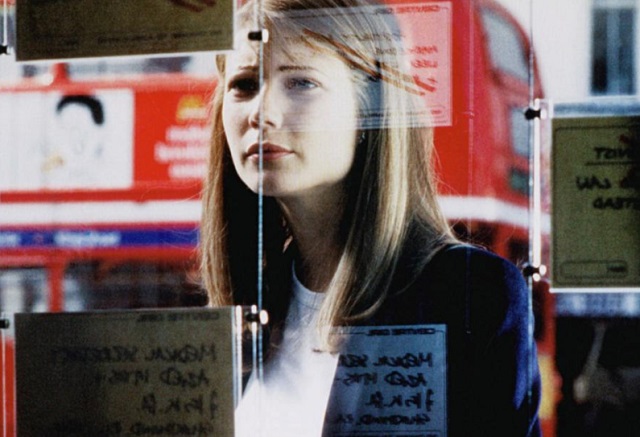
“There is no real ending. It’s just the place where you stop the story.” ~ Frank Herbert
When I first read this quote, I had no clue who Frank Herbert was—but it didn’t matter. The words “story” and “stop” immediately stood out to me.
By circumstance, I have become a storyteller.
Living on a tiny tropical island, a tourist destination, I get a lot of questions about the island and my life here. Telling the same story a few hundred times gets utterly boring. I’m sure most parents will agree. The listener thinks it’s awesome and exciting and brave that I live here, but I am just living my life.
Then I read these words, though I can’t remember where: “We are not our stories.”
Something clicked. I wanted to stop telling my story. I wanted to stop reconfirming again and again a story that made me seem special and awesome, while it wasn’t my reality. I didn’t want to be put on a pedestal just for living my life. It was not what I wanted my story to be.
What I didn’t realise then, but see clearly now, is that I was having a practice round for a powerful life lesson:
We have the choice to stop and change our stories.
Throughout life, we all hold onto stories in our heads that often become strong beliefs. These beliefs can be so powerful that they impact us for the rest of our lives—unless we stop them.
The stories start when we are small and are often handed to us by our parents, older siblings, teachers, and others who we spend time with. These people tell us what is good and bad with our behaviour, looks, habits, talents, and friends. We learn many untold lessons from their praise and criticism.
By observing and copying our parents, we take on their behaviours, habits, and preferences as our own, believing that the way they do things is how it should be done.
When we get a little older, the stories that we take in are about how we should be as adults, what constitutes a desirable career, and what we should try to achieve in life. With all that, we also learn everything that is undesirable, unacceptable, or downright despicable.
By the time we are living as independent adults, we have a “hard-drive” full of stories, hard-wired in our brains. We live by those stories, which form the basis for most of our beliefs—beliefs about the world and other people, but more than anything, beliefs about ourselves.
If we’re lucky, we enter adulthood believing we are talented, smart, charming, pretty, and always loved. We believe we can do anything, like every small child does. We have no fears. We believe that the world is a loving place, and that there will always be enough for everyone.
Sadly, most of us get conditioned in a different way. We end up believing that we are not so talented, not so good at sports/singing/math/networking, not so pretty and charming, not loved, and full of fears that we are incapable of doing many things. We believe that the world is a scary place, that life is hard, and that we will always have to suffer to achieve what we want.
That little voice in our heads, the one that’s always nagging, complaining, criticising? That’s the voice of all our beliefs constantly trying to re-affirm themselves.
Once a story has become a belief, we will act on that belief as if it’s a rule to live by. We won’t argue with it; we accept it and follow it. It doesn’t occur to us to stop believing the story.
We see the world through the lens of our beliefs. We see failure and rejection everywhere. We witness struggle all the time, in others and in ourselves.
We even subconsciously create situations that will, by default, confirm our beliefs. If we believe that we’re not good enough, we apply for a job we’re qualified for, but screw up during the interview. When we think we are unlovable and will always be rejected, we choose partners who are not really available for a relationship.
We hold onto these beliefs for dear life, defending them against all odds, because they seemingly give us the explanation for our suffering.
We think our unhappiness is caused by all the negative things happening to us, again and again. Of course, these things happen because we are not good enough, not pretty enough, not clever enough—don’t they? As long as we keep believing that, we can blame our unhappiness on these defects.
How many of us hold onto beliefs about ourselves that are negative, unhelpful, or downright harmful?
Beliefs that hold us back from reaching our full potential, keep us from being our best, keep us unloved?
Beliefs that bring us down and keep us in situations that make us unhappy?
Beliefs that don’t serve us at all?
Beliefs that keep us stuck in suffering?
I sure as hell did, for a long time!
Growing up, I believed that I would always be rejected and abandoned, that I was totally unlovable, and a failure at connecting with people. I never had many friends, or the best jobs, or a fulfilling and lasting intimate relationship.
Of course, for the longest time, I was totally unaware that this was a strong belief—a story without an ending, a familiar story of suffering.
At a certain point, I became aware that I had a pattern of failing relationships, but I continued to blame this on circumstance and on the men themselves, keeping a blind spot for my own hard-wired beliefs. I didn’t see that I always hooked up with guys who were unavailable for one reason or another. Neither did I see many of the behaviours I had adopted to avoid rejection, by rejecting first: not going to that party or dinner, not joining that group activity, not showing up. I stopped inviting people out for fear of being declined.
It took me another few years and several helpful books before I learned that these beliefs and related behaviours can be self-restrictive, and even downright self-destructive.
It was one of the most enlightening moments in my life.
These beliefs were just stories in my mind. And I could change my mind—as I learned from Joe Dispenza.
In the process, I discovered two powerful beliefs that have been my guiding force. May they be of benefit:
>> Once we recognise where our false beliefs come from (hint: they weren’t ours to begin with), and we realise that they don’t serve us and can even be harmful to our well-being, we can start to let go of them and replace them with new beliefs that do serve us.
>> This last part is essential: we have to invent and create a new version of ourselves with a different story, with different beliefs. If we don’t put a new belief in place of the old one, the old one will reclaim its power. As Dispenza explains: brain cells that fire together, wire together—meaning that we have to retrain our brains to fire, and thus, wire, in new ways with new beliefs.
Of course, it takes effort and time to change our mind and get rid of our long-held beliefs, but once we’ve shone the light of awareness on any of these useless falsities, they immediately start to lose their tight grip on us, our minds, and our behaviours.
I changed my mind about always being rejected and ignored. I started living as if rejection was not in my book. I changed my behaviours and started reaching out to people, showing up for them, being more open, and inviting myself. I volunteered to help, joined groups, and put myself out there. While I was scared in the beginning, I quickly found that there was no rejection at all, just acceptance and embracing.
It was embarrassing to admit to myself that I had made myself miserable for so many years by holding onto beliefs that didn’t serve me. It had all been a phantom in my mind.
With conscious effort to become more aware of our habitual thinking, we can stop ourselves in our tracks every time we find ourselves being pulled into false beliefs that lead to familiar suffering. Then, we can choose a different path by changing our thoughts and confirming a new belief about ourselves that serves us better.
We can start believing that we are lovable, beautiful, strong, fearless, talented, and successful. We can start to believe that we can write that novel, get that dream job, or find our life partner.
The story of our life doesn’t end until we die, but we can actively choose to stop a thread in a story that we don’t like and create another one instead.
Which story would you like to stop? Which belief would you like to create instead? Please share in the comments!
~
~
Author: Leontien Reedijk
Image: YouTube screenshot
Editor: Nicole Cameron
Copy Editor: Yoli Ramazzina
Social Editor: Catherine Monkman






Read 6 comments and reply